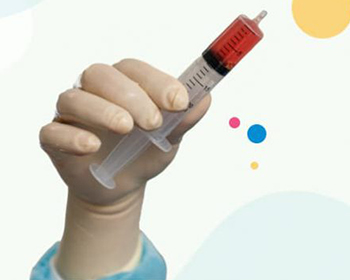Overview
HCG Manavata Cancer Center, the best center for Radiodiagnosis in Nashik, Maharashtra, is equipped with advanced radio diagnostic techniques that support accurate and timely diagnosis for a broad spectrum of cancers. The department has all key technologies, namely Ultrasound, radiography, Mammography, CT scan, MRI, and contrast imaging. It makes early diagnosis and treatment possible and improves the chances of survival of the patients.
Services and Facilities
Services offered at HCG Manavata Cancer Center department of radiodiagnosis are:
- GIT contrast studies: The center is equipped for performing several GIT contrast studies that assist oncologists in diagnosing cancers. Double-contrast studies related to barium enema are performed to diagnose tumors. MR Enterography and CT enterography are performed to diagnose small intestine tumors.
- Ultrasound: Ultrasound is performed to diagnose several cancers, especially when the image is not clear with x-rays. It also helps the surgeons to guide during a biopsy. Different types of ultrasound facilities are available at HCG Manavata Cancer Center, which include external ultrasound, Trans vaginal ultrasound, and endoscopic ultrasound.
- CT scan: Advanced computed tomography (CT) facilities are available at HCG Manavata Cancer Center. The CT scan allows the doctors to determine the shape and size of the tumor. The images obtained with CT are clearer than the x-rays. The CT scan also assists in biopsy by guiding the needle precisely into the tumor.
- MRI: Magnetic resonance imaging (MRI) is a minimally invasive way for doctors to examine high-resolution images of the inside of their patients’ bodies. Magnetic resonance imaging (MRI) also helps oncologists diagnose cancer. MRI is useful in diagnosing brain and spinal cord tumors. MRI also provides information related to the metastasis of the disease. The information provided by this technology allows oncologists to develop a highly effective treatment plan with better outcomes. The imaging system allows the diagnosis of tumors in the brain, damage due to stroke, soft tissue infection, and injury to the spinal cord.
- DSA: Digital subtraction angiography (DSA) effectively diagnoses various types of cancer, including pancreatic tumors. The technique also allows the oncologists to understand the progression of the disease, predict the prognosis, and develop a treatment strategy for cancer patients.
- Radiography: Radiography tests are useful in diagnosing various types of cancer, including the stomach, bones, and kidneys. The radiographic tests include x-rays, contrast studies, and roentgenograms.
- Mammography: Mammography allows breast cancer to be diagnosed at a stage where it can be effectively treated.
- Biopsy: It is the procedure in which the doctor obtains a sample of abnormal tissue and sends it to the laboratory for examination. Radiological and non-radiological techniques guide the surgeon in precisely obtaining the tissues. The techniques with biopsy include CT-guided biopsy, ultrasound-guided biopsy, or PET/CT-guided biopsy.
Frequently Asked Questions
1. Is Radiodiagnosis safe during pregnancy?
Extremely high doses of radiation may cause harm to the fetus, especially in the first couple of weeks after conception. It may also result in miscarriage. However, such high levels of radiation are not used in diagnostic techniques. Ultrasound and MRI are the techniques of choice in pregnant women.
2. Is there a need to undergo another radio-imaging test if I have already undergone one test?
In some cases, if the symptoms and the test results do not corroborate and the physician is suspicious about the presence of any disease, he may ask you to undergo another, more advanced imaging technique.
3. What should I do after receiving my imaging results?
It is important to consult with the doctor as soon as you receive reports of imaging tests, especially if you have undergone a cancer diagnosis. Early diagnosis and timely treatment of cancer support better-quality clinical outcomes.
4. How should I prepare for undergoing imaging studies?
Generally, there is no specific preparation required before undergoing imaging techniques. However, in some cases, the doctor may provide instructions. You may be asked to wear loose-fitting, comfortable clothes and keep the jewelry at home before leaving home to the hospital.











